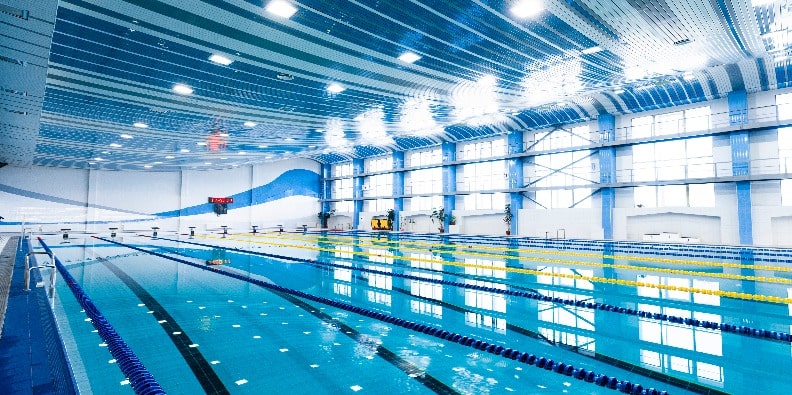Pool Water Analysis

Pool Water Analysis: Safe, Healthy Pool Environment
Swimming pools are widely used for both recreational and sporting purposes. However, swimming pools can pose various health risks if a healthy and safe environment is not provided. For this reason, in Turkey, the "Regulation on the Health Principles of Swimming Pools" sets the standards required for swimming pools to be used without harming human health.
Purpose of the Regulation
The main purpose of this regulation is to ensure that swimming pools are operated under hygienic conditions and to protect human health. The main objectives of the regulation are to ensure the microbiological, chemical and physical safety of the pools, to monitor the pool water quality regularly and to carry out maintenance activities in accordance with certain standards.
Scope of the Regulation
Types of pools covered by the "
Regulation on the Health Principles of Swimming Pools":
- Public Pools: Swimming pools that are generally open to the public.
- Special Purpose Pools: Swimming pools located in hotels, sports centers or health facilities that cater to a specific audience.
- Child Pools: Pools designed especially for children.
Hygiene and Cleaning in Pools
The regulation includes specific cleaning rules to ensure hygiene in pools. To ensure that the pool water remains hygienic, disinfection should be carried out regularly and these processes should be meticulously monitored. The areas around the pool should be cleaned with the same care. This reduces the impact of external pollutants in the water.
Audit and Control Processes
Specific processes are followed to inspect pools for compliance with health and safety standards. Inspections are usually carried out by municipalities or relevant health authorities. The Regulation requires pool operators to analyze and report pool water at certain intervals. These reports play an important role in checking whether pools comply with health conditions and whether the necessary hygiene measures have been taken.
Pool Safety: What Users Need to Consider
As well as the health suitability of the pool, it is important that users take certain precautions. Contaminants brought into the pool water from outside can impair hygiene standards. Users should shower before entering the pool, avoid conditions such as wounds or infections, and special precautions should be taken for the health of young children.
The Impact of the Regulation on Public Health
This regulation is of great importance as a preventive step to protect public health. Swimming pools, which are used intensively especially in the summer months, can cause the spread of many diseases under unsanitary conditions. Therefore, complying with the health guidelines stipulated by the regulation offers an effective solution to prevent infectious diseases and other health risks.
Standards for Pool Water Quality
One of the most important priorities of the regulation is to ensure that the water in swimming pools does not harm human health. The quality of pool water is assessed according to the following criteria:
- Microbiological Quality: Regular microbiological testing of the water in swimming pools is mandatory. These tests aim to ensure that the water is free of harmful microorganisms (e.g. bacteria, viruses or fungi). Criteria such as the absence of E. coli and other coliform bacteria are indicators of the microbiological safety of the water.
- Chemical Quality: Pool water must have a chemical composition that is safe for the health of the user. The Regulation sets limits for the chlorine level, pH value and other chemical components of water. For example, it is important to keep the amount of chlorine within a certain limit so that it does not harm user health while providing disinfection.
- Physical Properties: The physical properties of the pool water are also important in terms of quality. Expectations in terms of physical quality are that the water should be clear and free of color, and free of any bad odor. These criteria ensure that the appearance and sensory properties of the water are reliable.
Chemical Analysis
| Cyanuric Acid Determination |
| Biguanide Determination |
| Free Chlorine in Open Swimming Pool Water |
Physical Analyses
| Turbidity Determination |
SM 2130 B |
| Temperature Determination |
SM 2550 B |
| Color Determination |
SM 2120 C |
Microbiological Analyses
| Escherichia coli Count |
TS EN ISO 9308-1 |
| Total Coliform Bacteria Count |
TS EN ISO 9308-1 |
| Pseudomonas aeruginosa Count |
ISO 16266 |
| Total Colony Count |
TS EN ISO 6222 |
Why NANOLAB?
Nanolab always offers you the most reliable and fastest solution with its experience in the sector and strong infrastructure in pool water analysis. Thanks to its ISO 17025 accreditation, it analyzes the chemical and microbiological parameters of pool water according to the highest quality standards and provides internationally recognized test results. With our wide range of instruments and expert technical team, we meticulously measure pH, chlorine levels, disinfection efficiency and other important parameters.
Thanks to our regulatory expertise, we fulfill the legal requirements regarding pool water in the most accurate way and make your products compliant with international standards. Nanolab offers reliability, speed and quality in pool water analysis!

